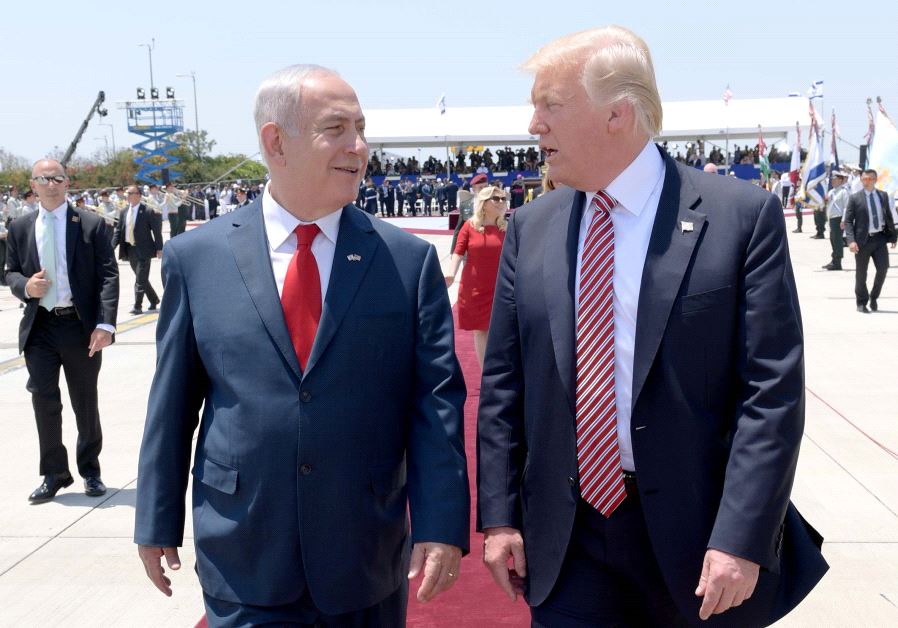Trump and a tale of three cities
Right-wing politicians then began to voice concern over an American president who supposedly turned from hawk to peacenik.
 US President Donald Trump and PM Netanyahu at Ben Gurion airport(photo credit: AVI OHAYON - GPO)
US President Donald Trump and PM Netanyahu at Ben Gurion airport(photo credit: AVI OHAYON - GPO)